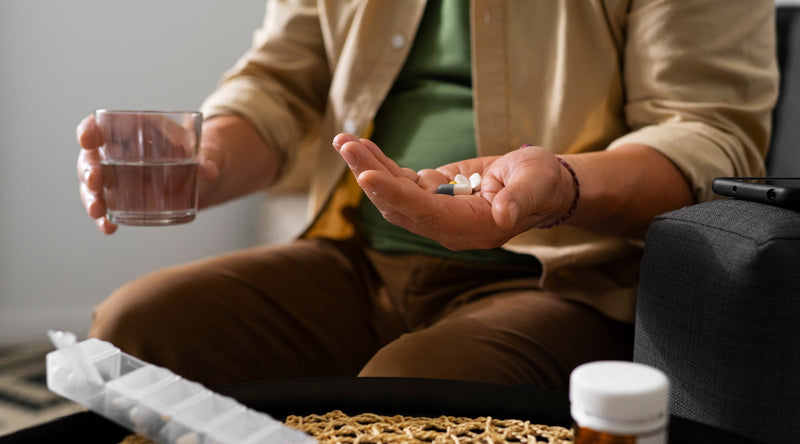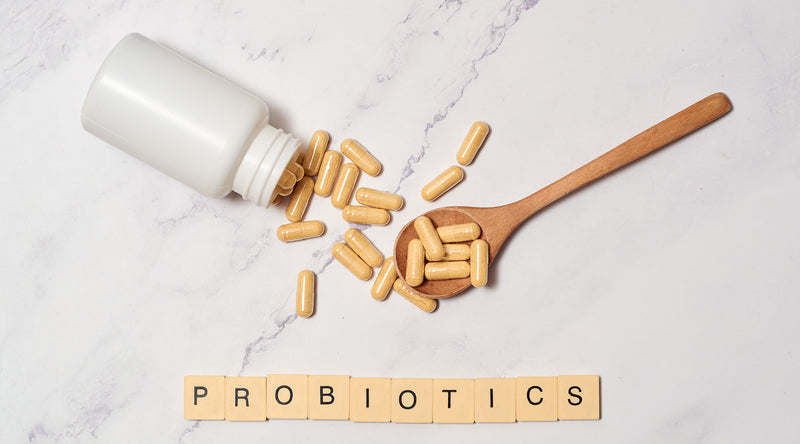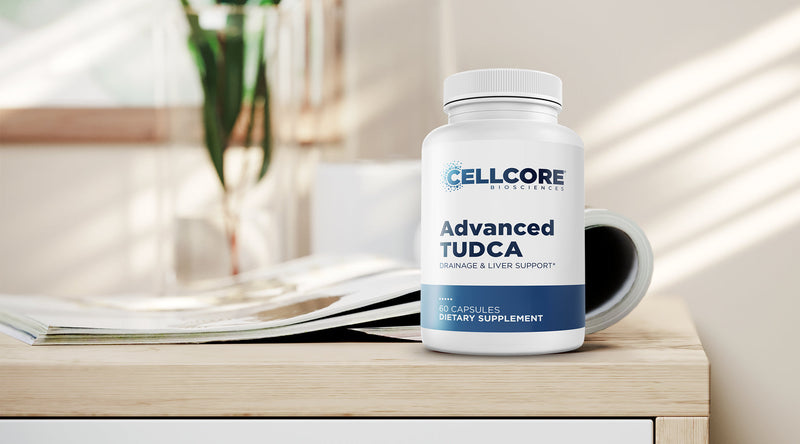Getting quality sleep has become increasingly challenging. If you're among the 70 million Americans struggling with sleep issues, natural sleep supplements might offer the solution you've been searching for. Unlike prescription medications, these gentle alternatives work with your body's natural processes to promote restful sleep without harsh side effects.
What are Natural Sleep Supplements?
Natural sleep supplements are derived from plants, minerals, and compounds that your body already produces or recognizes. According to Harvard Health Publishing, these supplements work by supporting your body's natural sleep-wake cycle rather than forcing sedation like many pharmaceutical options.
Key benefits of natural sleep supplements include:
-
Supporting your body's natural melatonin production
-
Reducing anxiety and stress that interfere with sleep
-
Promoting deeper, more restorative sleep phases
-
Minimal risk of dependency or morning grogginess
-
Gentle approach suitable for long-term use
Top 6 Science-Backed Natural Sleep Supplements
1. Magnesium: The Foundational Sleep Mineral
Magnesium is perhaps the most important natural sleep supplement, as nearly half of Americans are deficient in this essential mineral. Research published in the Journal of Research in Medical Sciences found that magnesium supplementation significantly improved sleep quality in older adults.
How magnesium helps sleep:
-
Regulates neurotransmitters that calm the nervous system
-
Activates the parasympathetic nervous system for relaxation
-
• Helps regulate your body's internal clock
-
• Reduces cortisol levels that can interfere with sleep
Recommended dosage: 200-400mg of magnesium glycinate 30-60 minutes before bedtime
Best form: Magnesium glycinate is highly absorbable and less likely to cause digestive upset
2. Melatonin: Your Body's Natural Sleep Hormone
Melatonin is a hormone naturally produced by your pineal gland that signals your body it's time to sleep. Synthetic melatonin supplements are particularly effective for specific sleep issues.
Most effective for:
-
Jet lag and shift work sleep disorders
-
Circadian rhythm disruptions
-
Older adults with declining natural melatonin production
-
People with autism or ADHD-related sleep issues
Important considerations:
-
Start with the lowest effective dose (0.5-1mg)
-
Take 30-60 minutes before desired bedtime
-
Sustained-release formulas help maintain sleep throughout the night
-
Not recommended for long-term use in children without medical supervision
3. L-Theanine: Calm Alertness for Better Sleep
Found naturally in green tea, L-theanine promotes relaxation without sedation. Clinical studies show it can improve sleep quality while reducing anxiety and stress.
Benefits for sleep:
-
Increases alpha brain waves associated with relaxation
-
Reduces cortisol and stress hormones
-
Improves sleep quality without morning grogginess
-
Safe for children with ADHD-related sleep issues
Recommended dosage: 100-200mg taken 30-60 minutes before bedtime
4. Glycine: The Temperature-Regulating Amino Acid
Glycine is an amino acid that plays a crucial role in regulating your core body temperature during sleep, allowing you to reach deeper, more restorative sleep phases.
Research findings:
-
Improved sleep quality and reduced daytime fatigue
-
Faster sleep onset without morning drowsiness
-
Better temperature regulation during sleep
-
Particularly helpful for hot sleepers and menopausal women
Recommended dosage: 3 grams taken before bedtime
5. Valerian Root: Traditional Herbal Sleep Aid
Valerian root has been used for centuries as a natural sleep remedy. While research results are mixed, many people find it effective for falling asleep faster.
How valerian works:
-
Increases GABA levels in the brain for relaxation
-
Provides mild sedating effects
-
May help reduce the time it takes to fall asleep
-
Best suited for occasional use rather than nightly supplementation
Recommended dosage: 300-600mg taken 30-60 minutes before bedtime
Caution: Can cause morning grogginess in some people; start with lower doses
6. Chamomile: Gentle Floral Relaxation
Chamomile has been used for centuries to promote relaxation and sleep. While research is limited, it's generally safe and well-tolerated.
Benefits:
-
Mild sedating properties from the apigenin compound
-
Reduces anxiety and promotes calmness
-
Available as tea, capsules, or tinctures
-
Safe for most people with minimal side effects
Recommended dosage: 400-1,600mg in capsule form or 1-2 cups of chamomile tea before bedtime
How To Choose The Quality Natural Sleep Supplements?
Since supplements aren't FDA-regulated, quality varies significantly between brands. Look for these quality indicators:
Third-Party Testing
Choose supplements certified by:
-
USP (United States Pharmacopoeia)
-
NSF International
-
ConsumerLab.com
These organizations verify that supplements contain the ingredients and amounts listed on labels.
Reputable Brands
Based on clinical experience and research, trusted brands include:
-
Kirkman (Magnesium Bisglycinate)
-
Vital Nutrients (Glycine Powder)
-
Integrative Therapeutics (L-Theanine)
-
Allergy Research Group (Sustained-Release Melatonin)
Proper Formulations
-
Magnesium: Choose glycinate or bisglycinate forms for better absorption
-
Melatonin: Consider sustained-release for staying asleep
-
Herbal supplements: Look for standardized extracts with verified potency
Safety Considerations and Interactions
Who Should Exercise Caution
-
Pregnant or breastfeeding women
-
Children (except under medical supervision)
-
People taking prescription medications
-
Those with chronic medical conditions
-
Older adults who may be more sensitive to sedating effects
Potential Drug Interactions
Natural sleep supplements can interact with:
-
Blood thinning medications (especially valerian)
-
Sedating medications and antidepressants
-
Blood pressure medications
-
Diabetes medications
Always consult your healthcare provider before starting any new supplement regimen.
Creating an Effective Sleep Supplement Routine
Timing and Dosage
-
Start with single supplements to identify what works best
-
Take 30-60 minutes before bedtime for most supplements
-
Begin with the lowest effective doses and increase gradually if needed
-
Be consistent with timing for best results
Combining Supplements
Some effective combinations include:
-
Magnesium + L-theanine for anxiety-related sleep issues
-
Melatonin + glycine for both falling asleep and staying asleep
-
Chamomile tea + magnesium for a gentle, relaxing routine
Avoid combining multiple sedating supplements (like valerian + melatonin) without professional guidance.
Beyond Supplements: Supporting Natural Sleep
Natural sleep supplements work best when combined with good sleep hygiene:
Sleep Environment Optimization
-
Keep bedroom cool (65-68°F), dark, and quiet
-
Use blackout curtains or eye masks
-
Consider white noise machines for consistent sound
-
Invest in comfortable, supportive bedding
Evening Routine
-
Establish consistent bedtime and wake times
-
Limit screen time 1-2 hours before bed
-
Practice relaxation techniques like deep breathing
-
Avoid caffeine after 2 PM and alcohol close to bedtime
The Bottom Line
Natural sleep supplements offer a gentle, effective approach to improving sleep quality without the risks associated with prescription sleep medications. Magnesium, melatonin, L-theanine, glycine, valerian root, and chamomile all have scientific support for promoting better sleep.
The key to success lies in choosing high-quality supplements, starting with appropriate dosages, and combining supplementation with healthy sleep habits. While these natural options are generally safe, consulting with a healthcare provider ensures you choose the right supplements for your specific needs and health status.











